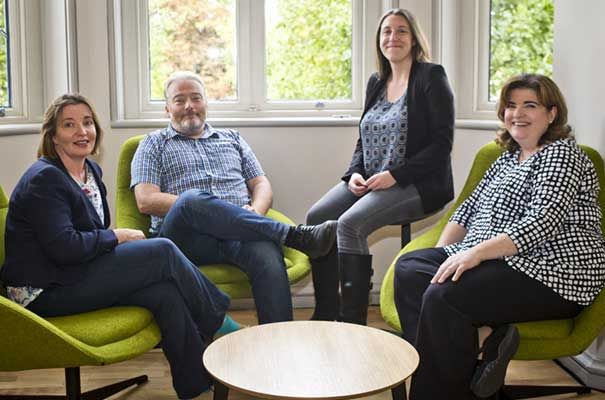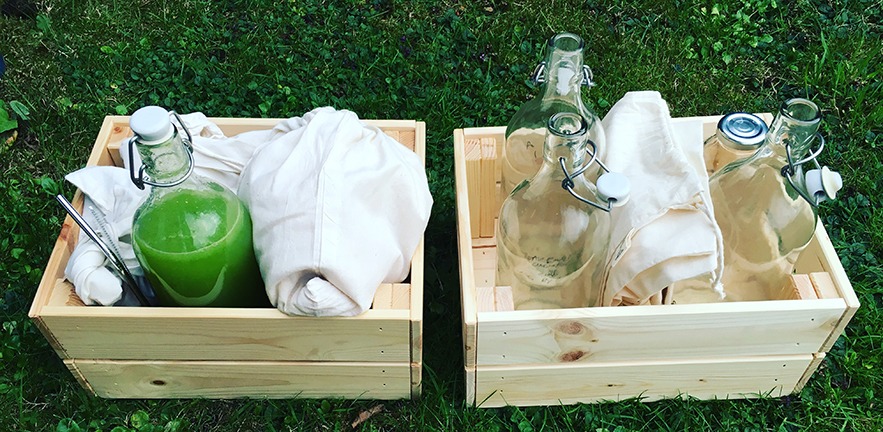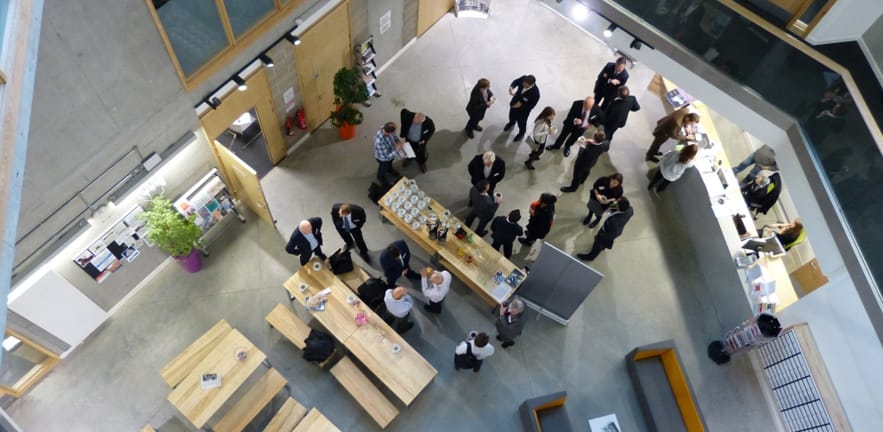
The Social Ideas Podcast
The Social Ideas podcast shares the impact of social innovation, its necessity and its capacity to challenge the status quo. Throughout this series, highly committed change makers in business, civil society, policy and academia will talk about their work, their ideas and their motivation to strive towards to a more equitable and sustainable world.
Five ways to support a social entrepreneur
As Cambridge Social Ventures celebrates its fifth anniversary, programme director Dr Belinda Bell, reflects on what she has discovered over the last five years of working with social ventures.
Cambridge Social Ventures is part of the Cambridge Centre for Social Innovation and we focus on the ‘doing’ part of think, teach, do. To that end we work directly with early and mid-stage social entrepreneurs through a range of programmes. Chiefly, we focus on providing training, advice, mentoring, access to finance and connections. The small team is highly experienced in this specific field with direct experience of establishing, scaling and exiting social and mainstream ventures, as well as supporting hundreds of social entrepreneurs through their journeys.

(left to right) Dr Belinda Bell, Mark Goodson, Tamzin Byrne, Karen Leigh Anderson
Firstly, there is almost no limit to the variety of the social ventures we meet
Our work is characterised by variety. We use the phrase ‘from fashion to farming, prosthetics to prisons’ which goes some way to indicating the range of ventures we have worked with. As well as multiple different fields, we have supported ventures led by a sole founder: for instance Kath Austin of BeeBee Wraps was making her cotton and beeswax alternative to clingfilm in her kitchen at home when she first came to us (she now has a factory and a team). Some ventures by nature have multiple founders: for instance, Animorph is a workers co-op developing augmented reality products, and Family Psychology Mutual CIC is a public sector mutual which spun out of a local authority. Some of the founders we work with are academics – for instance Dr Gina Gomez developed Bricks for Autism from her doctoral research.
Secondly, we’re confident that we add real value to the social ventures we work with – and want to find ways to do more
Given this is what we do all day, it may seem an obvious point to make but in fact the evidence on the effectiveness of, for instance, business mentoring is very mixed. Sometimes the experience mentors have is out of date, irrelevant to the social sector, or perhaps the individual is simply not very good at mentoring! We have been careful to design programmes which draw on the best evidence and are tailored very specifically for social entrepreneurs – covering the specific legal structures, different financing mechanisms, and the thorny question of measuring impact. That said, we are interested in how we can increase the impacts we are having. We don’t want to restrict ourselves simply to the amount of delivery our small team can undertake here in Cambridge. We’re considering a number of ways to move somewhat upstream to support our knowledge and skills to spread in useful ways across the sector and its infrastructure. We anticipate that by upskilling bank managers and business advisers to better understand the sector we can provide a really useful contribution to the overall ecosystem.
Thirdly, we can support and actively cultivate diversity in terms of gender and ethnicity
We know the social sector is often more diverse than the private sector, nevertheless, even within this context we work with a remarkably diverse group of people. About 60% of the entrepreneurs we are working with on all programmes are women or non-binary people and 30% are from minority ethnic backgrounds. We spent some time thinking about the factors that contribute to this and, in summary, our view is it comes from building a programme explicitly to appeal to everyone, whereas much in the (social) entrepreneurship area implicitly (and sub-consciously) is built to appeal to affluent, young, white, cis-gendered men. So we think carefully about the words we use, the practicalities for all types of people engaging with us, and actively promote female-centric businesses (such as sustainable lingerie company Amaella or human milk bank Hearts Milk Bank) as if they are, well, businesses that are focused on at least half of the population. We are far from satisfied as there is still so much apparent inequity in the world! One lack we are aware of is that we do not identify a proportionate number of disabled social entrepreneurs to work alongside.

Fourthly, pump-priming can work – and lead to greater things
We were lucky enough to receive initial ‘pump-priming’ funds from the Office for Civil Society via the Social Incubator Fund . With that money a partnership of organisations got us up and running. Our initial pump-priming enabled us to develop our product and prove the value of this work. We were subsequently able to raise more funding from a philanthropist to become Cambridge Social Ventures and were rolled fully into the Cambridge Centre for Social Innovation at Cambridge Judge Business School. We are integral to the ‘think, teach, do’ cycle of research translation in the Centre. Cambridge research informs our engagement with social entrepreneurs, allowing us to offer evidence-based training and support. And in turn, our work provides experiential learning opportunities to students and a pool of social innovators for research.
Finally, social venturing is not the answer to everything!
Over the five years we have been undertaking this work a lot has changed in the outside world. There is more and more public dissatisfaction with the way our societies and especially our economies are run. We are seeing the blossoming of new social movements, in particular focused on the climate crisis. We recognise that social entrepreneurship alone is not the solution to rising inequality in the world. We want to actively support the strengthening of civic society, new social movements, and new forms of democracy. Within that context, the toolbox of social entrepreneurship, coupled to the power of markets, continues to hold much potential for the increasing number of entrepreneurs driven to create ventures where social and environmental outcomes are the imperatives towards which their ventures are designed.
The future
What next for us? Well we’re going to continue to run our well-established programmes for early stage social entrepreneurs and are gradually developing our work with more advanced social entrepreneurs, where we think there is a shortage of support. We are approached by social entrepreneurs who are not suitable for our current programmes – because they are more advanced – but they have a strong desire to receive business support within a context which explicitly recognises and values their social motivations. To this end we’re taking bookings for a new three day residential programme on Leading Social Ventures for CEOs further along their social enterprise journey and also this year ran the inaugural Cambridge Prize for Social Innovation to recognise sustained achievement in this area and to support those extraordinary individuals to make further plans.
We’re looking forward to the five years ahead – there is much still to be done!

In this episode of The Social Ideas Podcast, Dr Belinda Bell (programme director) and Mark Goodson (business adviser & mentor) of Cambridge Social Ventures talk about the challenges and successes of working with local social entrepreneurs. They discuss the aims of Cambridge Social Ventures, and the underlying need for these types of ventures within society.


Leave a Reply